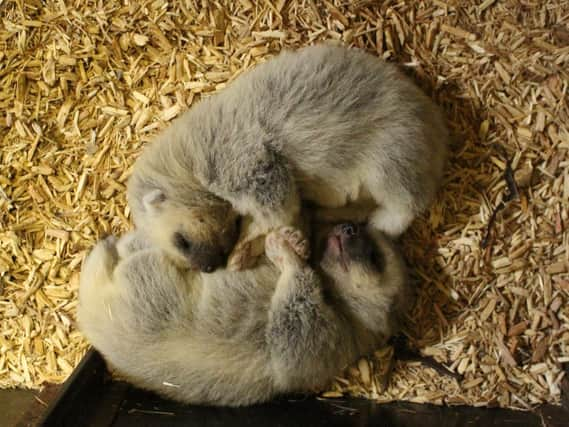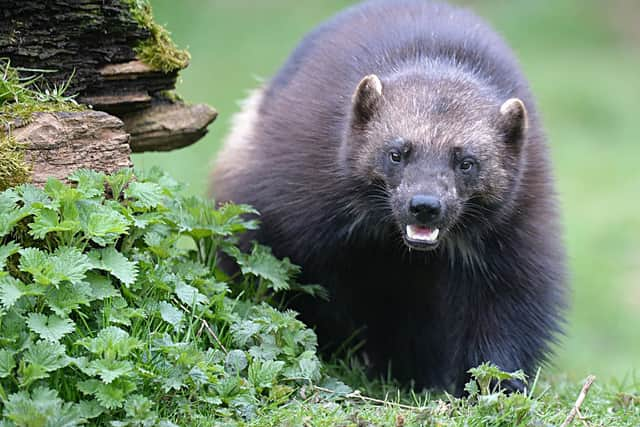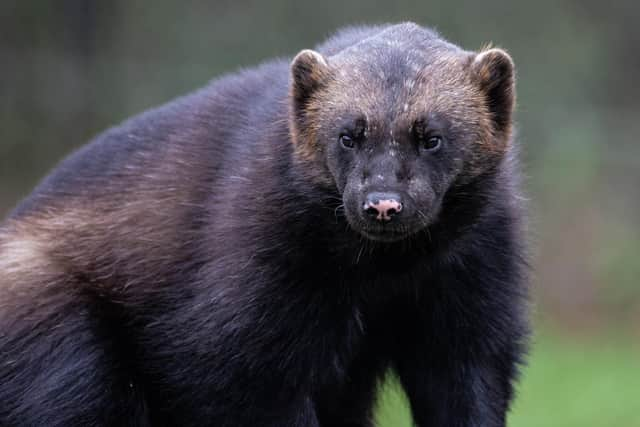Rare baby wolverines born at Whipsnade


The babies, known as kits, born on February 18, are rare additions to the species within the UK.
They were born to three-year-old female Fi and 10-year-old male Puff, as part of a European-wide breeding programme.
Advertisement
Hide AdAdvertisement
Hide AdNumbers of wolverines, also known as gluttons or skunk bears, are decreasing in the wild, so the breeding programme is of global significance. As yet, the sex of the Whipsnade kits is not known.


Female Fi arrived at the UK’s largest zoo in September 2018, and keepers soon observed positive signs between her and Puff, including playful chasing around their wooded enclosure.
Despite this, it was difficult for keepers to predict when they could expect new arrivals, because the gestation period, of one to two months, is often delayed as female wolverines save implantation of a fertilised embryo until conditions are right.
Team leader Donovan Glyn said: “We were delighted when we discovered that Fi had given birth to twins last month and have been carefully observing mum and her babies.
Advertisement
Hide AdAdvertisement
Hide Ad“Even though we don’t know their sexes yet, we’ve nicknamed them Logan and Hugh for now, in honour of their superhero namesake.


“They have not yet opened their eyes but will do any day now, and we’ve seen Fi taking meat for the kits to lick and try – the beginning of the weaning process.
“As we would expect, Fi has been a very protective mum, staying by their side and ensuring that no-one, including their dad Puff, gets too close.
“Puff, in turn, has been very respectful, keeping his distance and letting them have some space.
Advertisement
Hide AdAdvertisement
Hide Ad“Visitors to the zoo might be lucky enough to see them, even at this early stage, because Fi has started to pick up each one in her mouth and taking them out into the paddock for short periods of time, feeding and licking them in a makeshift nest area outside, before delivering them back to their warm, inside den.
“By Easter, we expect them to be out exploring for several hours a day.”